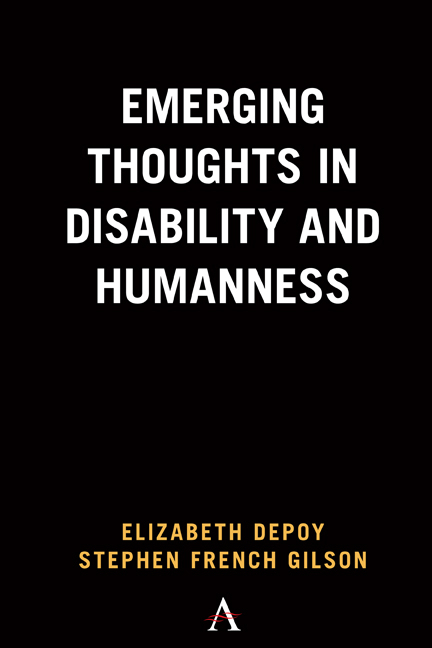Chapter 4 - The Offensive Scope
Published online by Cambridge University Press: 13 May 2022
Summary
In this chapter we put legitimacy theory to work. Following the well-used adage, where one stands on the legitimate definition of offending bodies depends on where one has been theoretically and contextually seated. As such the offending scope is not only wide but multidimensional, thereby creating a consensus quagmire about who is “disabled” or what disability actually is. It follows that a single definition of disability as an offending body is neither possible nor useful for developing a firm grasp of the complexity of how disability makes its contribution to defining humanness and its partial and nonexamples. In other words, who is a legitimate member of humanness without embodied violations and who is eschewed from that preferred group are the questions that remain. The scope of answers is a wide abstract, and contradictory, despite the myth that science and medicine are truth “fact-ories” that rest their claims on evidentiary “proof “ for defining and distinguishing group parameters of outliers, majoritarians, and their less valuable minoritarians.
What is considered an atypical body differs according to time, place, and intellectual context. In each era there have been several potential, assumed, and accepted explanations for a single atypical human characteristic or disabling phenomenon. As discussed in Chapter 3, these explanations form the basis for legitimate categorization and subsequent response to category members. Moreover, these rationales reveal the whys of category assignment and alterity branding by diagnosis or embodied circumstance. The responses proffered to the “marked other” provide an analytic sneak peek into the beliefs, values, politics, economics, intellectual trends, and the level of technological development of the time, as well as a reflective platform on how current conceptualizations of disability shape the larger puzzle of human categorization.
Why is impairment even important to human legitimacy? Barth (2018, 5) posits one important answer from the distributive justice perspective:
The challenges the human race is facing will require that humanity, as a collective, leverage the potential of each individual to a far greater degree of effectiveness than any society has previously accomplished. All of these questions, debates, and contentions revolve around a single aspect of human life that constitutes one of the most important conduits between individual and societal life, namely ability.
- Type
- Chapter
- Information
- Emerging Thoughts in Disability and Humanness , pp. 35 - 46Publisher: Anthem PressPrint publication year: 2022

